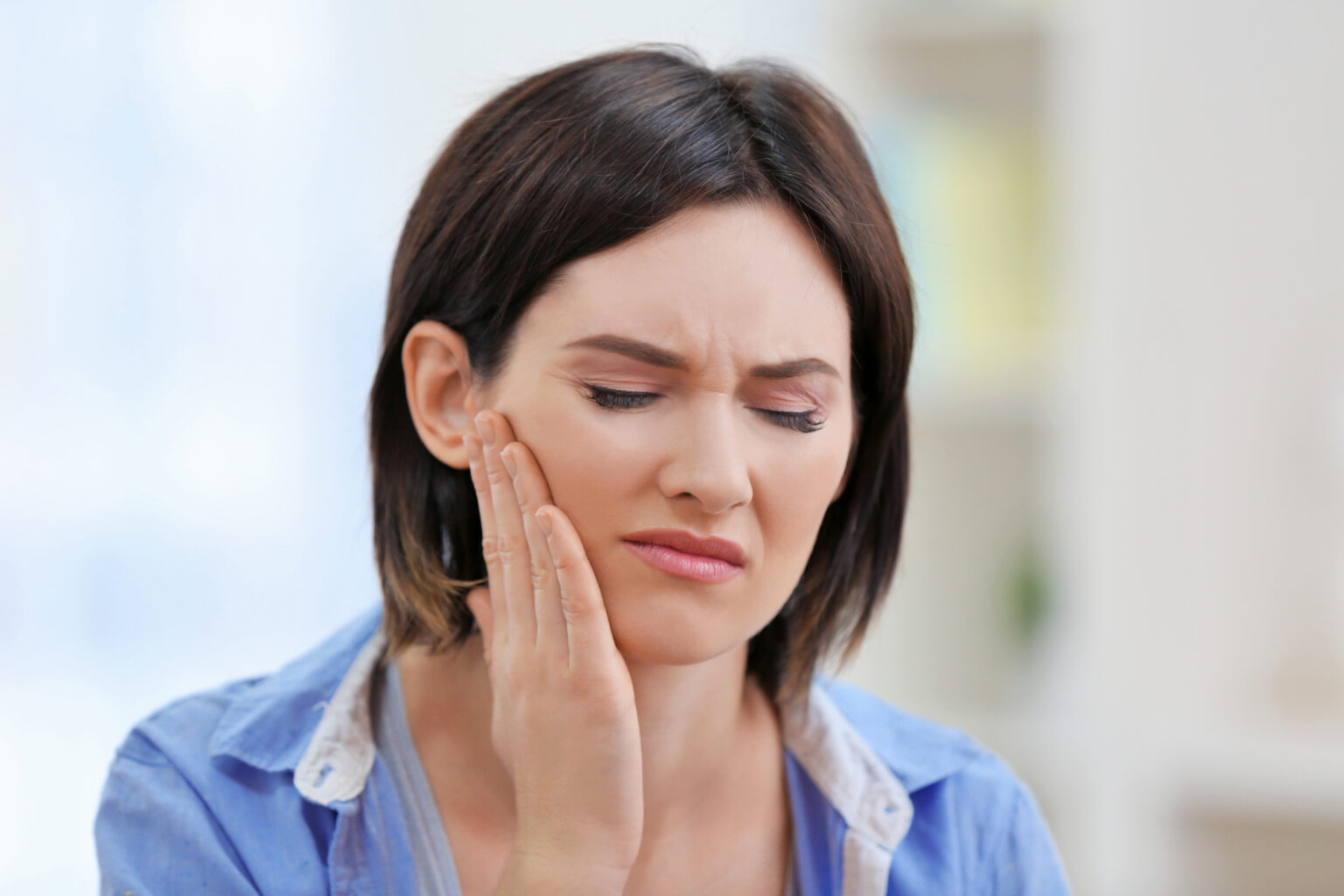
Teeth grinding, also known as bruxism, is one of the most common sleep disorders, specifically a sleep-related movement disorder, in America. According to the American Sleep Association, teeth grinding affects 10 percent of adults and nearly 15 percent of children. As a result, many wake up with headaches and tooth or jaw pain that seems to come out of nowhere. Teeth grinding may be caused by genetic, physical, and/or psychological factors such as:
- Stress
- Malocclusion
- Caffeine
- Sleep apnea
- Tobacco
- Alcohol
- Certain medical conditions
Whatever the cause, your oral and overall health are likely to suffer without appropriate, effective treatment. Although teeth grinding can occur during the day, many people don’t realize they have bruxism because it usually occurs during sleep. You may be suffering from teeth grinding if you experience any of the following symptoms:
- TMJ pain
- Tooth pain
- Headaches
- Earaches
- Popping of the jaw joints
- Restricted jaw movement
Dr. Timothy Mickiewicz offers effective treatment options to relieve these symptoms and stop the negative effects of bruxism. When left untreated, bruxism can lead to cracked teeth, nerve damage, and TMJ disorder.
Depending on the severity of your condition, Dr. Mick will suggest one of three treatments: mouth guards, orthodontic treatment, or BOTOX® therapy. Continue reading to learn more about each treatment, and contact our office today at 916-469-9178 to schedule an initial consultation with Dr. Mick.
Mouthguards
If your teeth grinding is a result of stress, too much caffeine, a medical condition, or medication, a mouthguard, also known as nightguards, may be exactly what you need. A mouthguard provides a cushion between your top and bottom teeth and protects them against enamel erosion, chips, and gum recession.
Dr. Mick will make a mold of your teeth and send it to a lab for your mouthguard to be manufactured. Custom-made mouthguards will fit much better and much more comfortably than over-the-counter mouthguards, so you don’t have to worry about it slipping and moving around while you sleep. It may take time to get used to your mouthguard, but the benefits are worth it.
Orthodontic Treatment
When bruxism is related to malocclusion, orthodontic treatment is available. Moving your teeth into the correct position will create a balance across your bite and reduce the chances of teeth grinding.
Dr. Mick offers a variety of braces options for patients of all ages and all needs. These include:
- Traditional metal braces
- Invisalign®
- AcceleDent® Optima
Visit with Dr. Mick soon to learn if any of these options are right for you.
BOTOX® Therapy
If your teeth grinding is connected to TMJ pain, Dr. Mick may suggest BOTOX injections. This nonsurgical and noninvasive treatment can produce results in as little as one day with no recovery time. The injections relax your jaw muscles and diminish the pain caused by teeth grinding.
To fully benefit from BOTOX therapy, you will likely need to attend repeat treatments. Each treatment typically provides relief for three to four months.
Not everyone is a candidate for BOTOX therapy. Talk with Dr. Mick about whether or not you qualify for this treatment.
Contact Your Sacramento Dentist Today
Dr. Mick has successfully treated thousands of patients with dental and orofacial problems. He even trains other dentists in the treatments for bruxism. Let us help you find relief from bruxism as soon as possible so you can avoid the painful consequences. Contact our Sacramento, CA office today at 916-469-9178.


